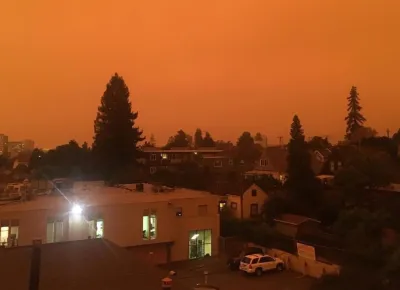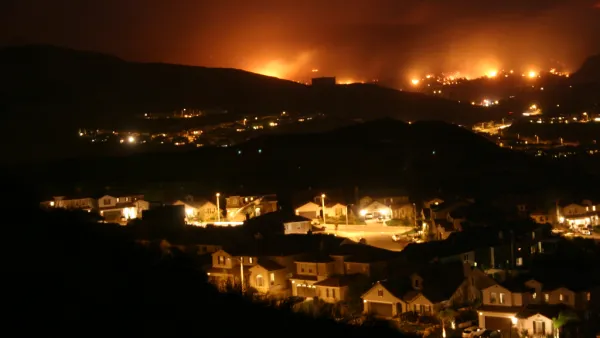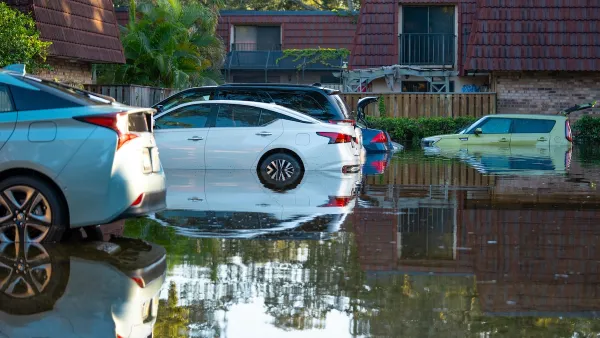Home insurers argue they should be able to base policy costs on modeling that accounts for future risks from climate change and overdevelopment.

The home insurance industry is calling on California to discourage construction in fire-prone zones by allowing insurers to account for future risks when evaluating policy applications. With climate change causing more extreme wildfire seasons and development pushing farther into high-risk areas, reports Debra Kahn, California insurers anticipate increasingly severe damage from wildfires. Meanwhile, homeowners in fire zones are finding it more difficult to secure policies or seeing their rates rise dramatically, even through the state's last-resort option, the FAIR plan. In October, the state temporarily banned insurers from dropping homeowners in areas affected by recent major wildfires.
Consumer watchdog groups warn that the proposed model, dubbed "catastrophic modeling" and used in every state except California, would defy consumer protection laws, and the state's insurance commissioner, Ricardo Lara, has shown reluctance to change the policy, opting to focus on a "consumer-oriented" approach that protects homeowners from exorbitant rate hikes. State politicians are similarly hesitant to dictate where development can happen, citing concerns that restrictions on construction could worsen the state's housing shortage.
But some experts warn that increased reliance on the FAIR program for the highest-risk homeowners could put an undue burden on taxpayers, much like FEMA's beleaguered flood insurance program. In Florida, which experiences frequent hurricanes and flooding, regulations on the insurance industry tie insurance to "more-stringent building codes, with incentives for going beyond the standards to install the sturdiest doors and windows" to reduce risks.
FULL STORY: California continues to face wildfire risks. Insurers think they have an answer.

Analysis: Cybertruck Fatality Rate Far Exceeds That of Ford Pinto
The Tesla Cybertruck was recalled seven times last year.

National Parks Layoffs Will Cause Communities to Lose Billions
Thousands of essential park workers were laid off this week, just before the busy spring break season.

Retro-silient?: America’s First “Eco-burb,” The Woodlands Turns 50
A master-planned community north of Houston offers lessons on green infrastructure and resilient design, but falls short of its founder’s lofty affordability and walkability goals.

Test News Post 1
This is a summary

Analysis: Cybertruck Fatality Rate Far Exceeds That of Ford Pinto
The Tesla Cybertruck was recalled seven times last year.

Test News Headline 46
Test for the image on the front page.
Urban Design for Planners 1: Software Tools
This six-course series explores essential urban design concepts using open source software and equips planners with the tools they need to participate fully in the urban design process.
Planning for Universal Design
Learn the tools for implementing Universal Design in planning regulations.
EMC Planning Group, Inc.
Planetizen
Planetizen
Mpact (formerly Rail~Volution)
Great Falls Development Authority, Inc.
HUDs Office of Policy Development and Research
NYU Wagner Graduate School of Public Service




























